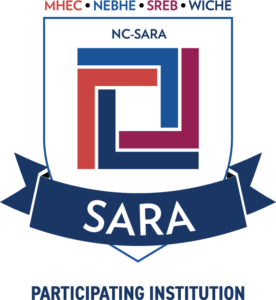This course provides an overview and exploration of the organization of American government, which
includes an overview of the historical significance of the Constitution; the Bill of Rights; Congress; the
Supreme Court; the Presidency; political parties and interest groups. This course is an introduction to
political science.
This course is designed to introduce biology at an entry level by examining the hierarchy that ranges from
the fundamentals of cell biology to the physiology of organisms, and the interactions among those
organisms in their environment.
This course is a basic review of mathematical and quantitative skills, including terminology, checking
accounts, taxes, payroll, step-by-step approaches. This assists in developing math skills used in personal
and business applications.
This introductory course explores the writing skills to include mechanics, effective writing, organization,
and essays. The course ends with a final paper where students demonstrate their newly acquired writing
skills.
This course is an introduction to the human resources field and its key elements. The course outlines the
roles and functions of members of the human resources department, as well as educating others outside
human resources, in how their roles include human resources-related activities.
This course focuses on the principles of communication to include oral and written language. Students
learn the significance of culture and other factors and how they relate to communication.
This course presents the theories and principles of modern psychology. Students learn about the different
branches of psychology and the practical application of psychological tenets to functional behavior.
An introductory philosophy course that concentrates on concepts and issues, such as the nature of value,
duty, right and wrong, the good life, human rights, social justice, and applications to selected problems of
personal and social behavior.
This course is an introduction to sociology as a way of understanding the world. Sociology is a field of
study that explains social, political, and economic phenomena in terms of social structures, social forces,
and group relations.
This course explores human behavior in organizations using psychology and sociology principles. The
content discusses the implications of human behavior for business organizations. Issues pursued in this
course include group dynamics, communications, motivation, leadership, and decision making as well as
organizational design, culture, development, and change. The discipline of Organizational Behavior is
unique in its combined goals of seeking organizational success while advocating employee
empowerment.
This course is an introduction to the preparation and analysis of business financial statements. Specific
topics include the accounting model, general purpose financial statements and accounting for assets,
liabilities, and equity.
This course is designed as an introduction to the study of the human communication process with an
emphasis on effective public communication. The course includes intensive practice in public speaking,
reasoning, critical thinking, and critical listening. It is an essential general education course teaching
effective use and understanding of written and spoken forms of communication.
This is an introductory course to the social work profession. It explores key ideas, values, and processes
in social work practice. The course looks at social work from a global and national perspective
incorporating the various types of practice as well as the evolution of social work.
This course is designed to introduce students to ethics and values within the social work profession. It
explores the NASW code of ethics and applies the code to real-world topics. The course is an essential
part of the social work curriculum building a foundation for professional and ethical practice.
This course is an introductory exploration of social work assessments and clinical counseling. Students
get hands-on experience using case studies and currently used documents to navigate the assessment
process.
This course is an overview of the history and evolution of social welfare programs in the USA and across
the globe. It identifies the relationships between social paradigms, values, and structures with policy.
This course uses a social systems approach to understand culture and society. It explores the relationships
and interconnectedness of human systems and the environment. This course is heavily rooted in social
work theory.
This course is routed in the transactional relationship between individuals and their environment. Learners
apply social work theory and research heavily throughout this course.
This course focuses on understanding the beliefs, values, experiences, and issues of minority and other
vulnerable population groups. It explores socioeconomic disparities, gender, sexual orientation and
expressions, religion, physical and cognitive challenges, and age
This course is the practical application of the skills and knowledge attained throughout the program

